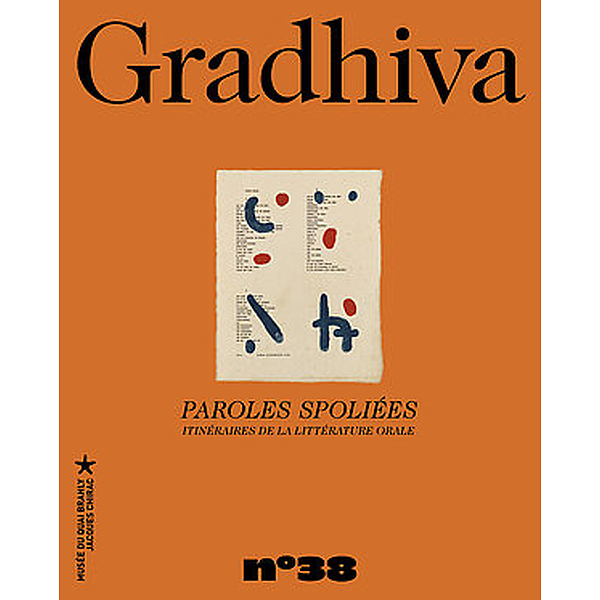Gradhiva n°38 - Paroles spoliées
Description
Despoiled words. Itineraries of oral literature Following the colonial conquests, the colonising powers not only appropriated territories and cultural assets, they also collected words. Missionaries, administrators, ethnologists and linguists transformed oral utterances of various kinds and functions in their original context into texts, soon to be grouped together under the category of 'oral literature'. In a situation of colonial asymmetry, this threefold transfer (from oral to written form, from one language to another, from one cultural context to another) gave rise to inevitable alterations. The sources of the texts have sometimes been erased, and their meaning distorted or lost. A few anthologies of African, Oceanian and other tales are still being sold today, without the provenance of the texts being questioned. Some have had remarkable careers, particularly when they passed through the hands of avant-garde poets such as Tristan Tzara, Blaise Cendrars and Jerome Rothenberg, or writers who themselves came from colonised territories, such as Léopold Sédar Senghor and Patrick Chamoiseau. Guided by the principles of provenance research carried out on museum objects, this dossier bridges the gap between French- and German-speaking research on the subject, and features case studies from Africa, the Caribbean and North America. What are the logics of appropriation at work in these transfers? Is it possible to thwart them?
Product information
- Publication Year
- 2024
- Number of Illustrations
- 80
- Dimensions
- 24 x 30 cm
- Number of Pages
- 228
- EAN
- 9782357441576

